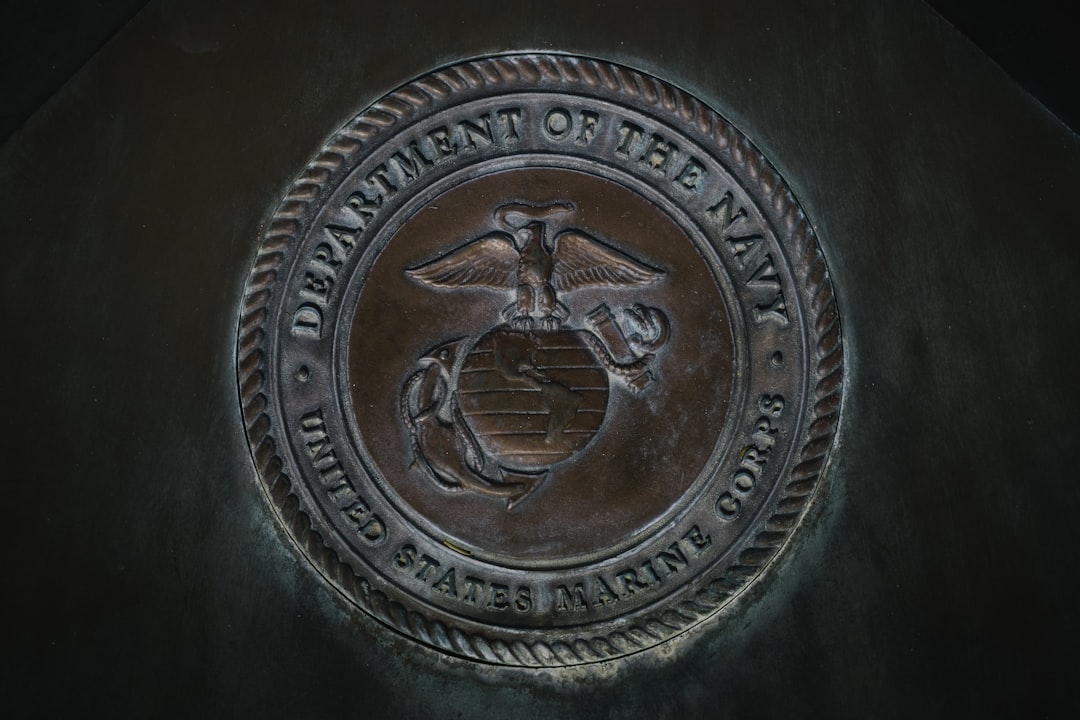Shaggy haired civilians
An exception to the Marine Corps rule of 3! Also, 7 other things worth your time.
Today is the Marine Corps birthday. Personally, I love the Marines. I helped write a book by a Marine. And, my brother is a former Marine. (OK, fine, before my email blows up: “Unlike the other branches of the military, there’s no such thing as a former Marine.”)
Regardless, the real thing I think of when I think of the Marines is a rule I was once told they embraced, and which I then used to organize my life.
I’ve told part of this story in the past. The year was 1998. My parents were visiting from out of town. And my dad showed me an article in Inc. magazine that truly affected my thinking.
Written by David H. Freedman, it explored the organizational and leadership strategies of the U.S. Marine Corps. Among other things, Freedman talked about the "Rule of 3," and why the Marine Corps adhered to it:
The Marines ... have pushed out decision-making authority while retaining a simple hierarchical structure designed to keep everyone's job manageable. In a nutshell, the rule is this: each Marine has three things to worry about.
[T]he "rule of three" means a corporal has a three-person fire team; a sergeant has a squad of three fire teams; a lieutenant and a staff sergeant have a platoon of three squads; and so on, up to generals.
The functional version of the rule dictates that a person should limit his or her attention to three tasks or goals. [I]nfinite possibilities [are reduced] to three alternative courses of action.
Anything more, and a Marine can become overextended and confused. The Marines experimented with a rule of four and found that effectiveness plummeted.
The idea stuck with me; I made an effort to organize things in my life according to the rule of three whenever possible. I also noticed—not for the first time, I'm sure—the way our brains react automatically to the symmetry of the rule of three.
For example, I've written before about how Steve Jobs used the rule of three in almost every major speech he gave: from the introduction of the Macintosh in 1984, to his commencement speech at Stanford in 2005, to his introduction of the iPhone in 2007.
The rule of three also winds through the way we organize and describe our shared history, culture, and even religious beliefs.
In ancient Greece: Socrates, Plato, and Aristotle.
In modern life: work, rest, and play.
In Christianity: Father, Son, and Holy Spirit.
But recently, I was caught short by a Marine Corps announcement that seems to set aside the rule of three. It has to do with the organization of a brand-new kind of Marine Corps regiment called the 3rd Marine Littoral Regiment.
Haley Britzky of the military site Task & Purpose explained:
Activated earlier this year, the regiment is intended to signify a major shift in the way the Marine Corps will operate in the Pacific. And one of the most impactful changes that have come from it, Marines on Oahu told Task & Purpose this month, is what a squad in the regiment's littoral combat team looks like.
Typically, a squad consists of 13 Marines split into three fire teams of four, with one squad leader. Now, a squad will be 14 people, split into two fire teams of six Marines, with a squad leader and assistant squad leader. Each fire team will also have a team leader, some of whom were previously squad leaders before the reorganization.
"If I have four individuals, let's say three teams of four, it's going to be a lot harder to control them in the environment, whereas if I have two teams of six, I can separate myself and that team of six has enough firepower within themselves to essentially be able to defend themselves and attack," explained a sergeant who is now a fire team leader in the regiment.
Another practical benefit: It's easier to load and lead two squads onto a pair of rubber raiding boats than it is to divide three squads between two boats.
But no Rule of 3? I was a little bit hurt. So, I asked the Marine Corps a couple of times for comment on whether this represents a strategic departure, or an intentional exception to the organizational rule of three, or if perhaps shaggy haired civilian writers like me were making too much of the rule of three and the Marine Corps to begin with.
(In fairness, I did serve in the Army Reserve, but I know some Marines probably think that’s just slightly more intense than the Cub Scouts.)
I didn't get a response. Maybe I should have asked three times, in keeping with the spirit of this article. But I think we can take a few lessons from the experience—and the rule—in any event:
Learn the rules.
Make them easy to remember.
Apply them to your life when it’s helpful.
Break them when that works for you, too.
The Rule of 3 is dead(?). Long Live the Rule of 4.
7 other things worth knowing today
For the second day in a row, post-Election Day, I'm just going to say that I don't know for sure who will control each house of Congress, or who all the governors are, etc. Heck, in my little town we haven’t been able to say for sure who won the last seat on the school board. Fortunately, other folks will be staying up late and trying to tabulate that kind of thing; they can be found here. (NBC News)
Meta, parent company of Facebook, laid off 11,000 people. Here's the letter Mark Zuckerberg sent explaining it all. (CNBC, FB)
Adidas' break-up with Kanye West has halved its earnings forecast for 2022; the German sportswear company now expects net income to be about 250 million euros due to the decision to end its Yeezy partnership with the rapper. (Business Insider)
A woman has filed a lawsuit against Warren Beatty, alleging that the actor coerced her into having sex with him when she was 14 or 15 years old, in 1973. The suit does not cite Beatty by name, but identifies the defendant as having been nominated for an Academy Award for his role as Clyde in “Bonnie and Clyde” — a clear reference to Beatty. (Variety)
Brittney Griner, the WNBA basketball star and Olympic gold medalist who has been jailed in Russia for more than eight months, is being transferred to a penal colony. Prisoners are typically not allowed to communicate with the outside world for a week or two while they are moved, and lawyers and family members do not know where the inmates are going—learning which penal colony the sentence will be served in only once the prisoner arrives. (NYT)
Meditation works as well as a popular drug to reduce anxiety, study finds. (NPR)
TSA agents find gun smuggled inside raw chicken, then smuggle puns into social media post. (Fox5NY)
Thanks for reading. Photo by Levi Meir Clancy on Unsplash. I wrote about some of this before for Inc.com. See you in the comments.








Marine Corp Birthday and Veterans Day are my two favorite days of the year. My oldest son joined the Marines in 2002 (4 years svc), my youngest joined the Army in 2005 (9 years svc). Both of which did two tours in Iraq. I have a dozen of stories that are gut wrenching for a military Mom. I'm blessed that both my sons came back with all their body parts. It's not just the danger and sacrifices these folks make, their day-to-day life is no cakewalk. My Marine Corp son got tired of me trying to understand what it's like in Iraq when its 130 degrees outside. He told me " Mom, on the hottest summer day in Houston, put on your warmest clothes, put a backpack full of books and put it on your back, go outside at 4:00 in the afternoon, run down the street and back, now get someone to take a plate full of the finest sand you can find and have them use a blow dryer at the hottest setting and have them blow it into your face. That is what it feels like in Iraq.". That is an example of what our service members do on a regular day when not much else is going on. Thank everyone you see that has a military hat on. They deserve our thanks and gratitude -- each and every one of them !!!
Actually the rule of 3 starts in childhood……”you have until the count of 3!”